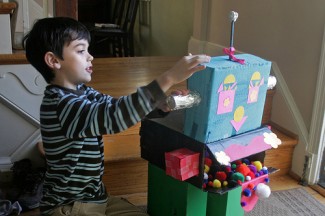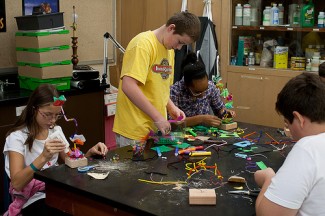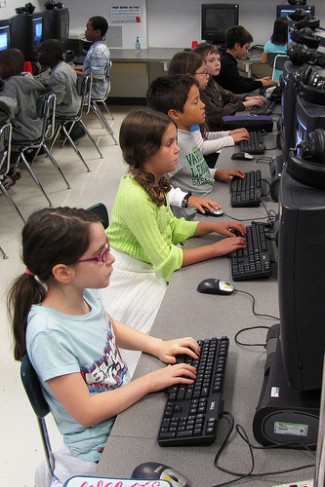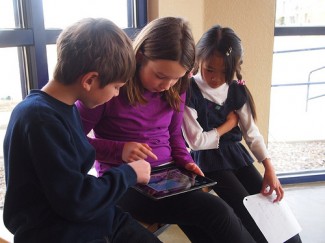Super Mario Run
LQ: 8.8
Recommended Age: 5+
Skills Used: Flexibility, Focus
 Our definition of Planning is derived directly from the Planning executive function. This is the Thinking Skill students use in order to develop a strategies to help them accomplish a goal. For example, when faced with a long-term group assignment, students have to plan ahead in order to divide tasks, determine the materials needed, and develop a time-frame for completing the work together.
Our definition of Planning is derived directly from the Planning executive function. This is the Thinking Skill students use in order to develop a strategies to help them accomplish a goal. For example, when faced with a long-term group assignment, students have to plan ahead in order to divide tasks, determine the materials needed, and develop a time-frame for completing the work together.
Planning is important in a variety of academic contexts. Students have to plan ahead when they are using a procedure to complete an experiment in science class. They have to plan when they prewrite a paragraph or essay they will write. They also have to plan ahead when they are working on a math word problem and need to figure out how to approach the question and what operations and formulas to use. Planning skills are important for students to have in order to consistently meet with success in the classroom.
Click here for more Planning Fundamentals.
 Students need to use Planning skills on a consistent basis in the classroom. The following list outlines some common classroom tasks that require the use of Planning skills:
Students need to use Planning skills on a consistent basis in the classroom. The following list outlines some common classroom tasks that require the use of Planning skills:
 Games digital media are often very useful in developing planning skills. Students can use note-taking and brainstorming technologies (like Evernote) to help them to plan and organize a written piece. Programs that allow students to customize projects, like Glogster or Keynote, require them to plan ahead and think about multiple components before creating the final product. There are also numerous digital planners available to help students keep track of their assignments and schedules in and outside of school.
Games digital media are often very useful in developing planning skills. Students can use note-taking and brainstorming technologies (like Evernote) to help them to plan and organize a written piece. Programs that allow students to customize projects, like Glogster or Keynote, require them to plan ahead and think about multiple components before creating the final product. There are also numerous digital planners available to help students keep track of their assignments and schedules in and outside of school.
Many video games require the development of short and long-term goals for the player to be successful. For example, players often need to collect certain rings, coins, or other items in a game that later will allow them to achieve larger goals and move on to subsequent levels. Games can also provide an understanding of the step-by-step process that mastery frequently requires. In addition, games provide direct and personal feedback to players regarding the success or failure of their plans. Learn more about how digital game play can help develop Planning Skills.
Check out our classroom guides for information on how to use specific games and digital technologies to teach Planning skills.
 Alternative Learners sometimes struggle to use Planning skills when they approach academic tasks. Some of them might not see the value in thinking ahead, while others might need guidance about how to plan effectively for different tasks and assignments. Our Classroom Guides provide teachers with ideas on how to integrate digital media into instruction in a meaningful and fun way that can help Alternative Learners work on their Planning skills.
Alternative Learners sometimes struggle to use Planning skills when they approach academic tasks. Some of them might not see the value in thinking ahead, while others might need guidance about how to plan effectively for different tasks and assignments. Our Classroom Guides provide teachers with ideas on how to integrate digital media into instruction in a meaningful and fun way that can help Alternative Learners work on their Planning skills.
Students who are diagnosed with Attention Deficit Hyperactivity Disorder (ADHD) or other attention problems often don’t take opportunities to plan ahead. For example, some of these students might think it is not necessary for them to write down the things they need to bring home to complete their homework, however, they continuously leave things at school that they need. Often students with ADHD are not sure how to approach a planning task. Without a lot of guidance, they might sit down to brainstorm ideas for a paragraph and instead start writing it right away in a stream-of-conciousness fashion. Many students with attention difficulties need explicit instruction on how to plan appropriately for different classroom assignments and tasks.
Using video games and other kinds of digital media can help students with ADHD build Planning skills. There are so many technologies available that teach students how to use planning strategies, and can be individualized depending on what works for the student. Many videogames also require students to use planning skills in order to accomplish goals in the game. Our Classroom Guides provide a variety of suggestions for how to integrate digital media into your instruction to help students build Planning skills in the classroom.
Students with behavioral problems often struggle to think ahead about how to avoid conflicts and make good choices in the classroom. Many of these students are often described as acting without thinking, not considering the consequences of their actions. Often, students with behavioral problems need explicit instruction about how to stop and think before reacting inappropriately in a situation where they feel frustrated or angry. They may also need guidance about how to make good choice and plan ahead so that they can avoid situations that might lead to conflict or make them upset.
There are many video games and other digital technologies available that deal with conflict resolution and thinking before acting. Incorporating digital media like this into your instruction can greatly benefit students with behavioral problems and help them build important planning skills that can help them succeed in the classroom, both socially and academically.
Planning can also be a struggle for students with Learning Disabilities. tudents with Learning Disabilities will have different planning concerns based on their individual profiles. For example, some students may have difficulty planning to complete a long-term project. Others might need help prioritizing homework assignments. Some might need structured plans for reading comprehension or organizers to help them plan out a written assignment.
Incorporating digital media in the classroom provides many opportunities for differentiation in order to meet the needs of all students, and to help build Planning skills. Our Classroom Guides can help teachers of students with Learning Disabilities and can be adapted to meet the needs of individual students.
Black History Month sprung up initially as a week-long celebration in Black communities in February in the 1920s. For fifty years the celebration spread across the country until […]
In this mobile infinite runner addition to the classic Mario Bros. franchise, Bowser has returned to the Mushroom Kingdom in hopes to kidnap Princess Peach and rule the land once […]
Pikmin 3 was a game for the Wii U that has now been upgraded and re-released for the Nintendo Switch. It is a strategy game where the player […]
All membership plans come with full access to our entire suite of tools learning guides, and resources. Here are a few of the ones we think you’ll like the most: